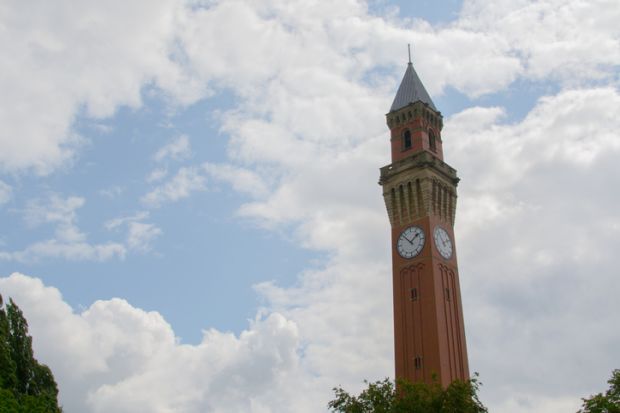The University of Birmingham has apologised for gay conversion therapy carried out on its campus as late as the 1980s, describing the practice as “degrading, unethical and harmful”.
The apology follows the publication of a report by Birmingham researchers that found historical sexual reorientation research and practice took place on its Edgbaston campus between 1966 and 1983.
Research into the episode was commissioned following the testimony of an individual who came forward in 2020 to the BBC to report that he had experienced sexual reorientation techniques in the mid-1970s at the university.
“Today I formally acknowledge and apologise for the university’s role in the historical research and practices detailed in this report and the harm that they caused,” said the university’s vice-chancellor, Adam Tickell.
“We understand that many of our staff and students will be distressed and angered to learn of the findings of the research into these practices, where the aim is to change a person’s sexual orientation or to suppress gender identity.”
The report confirms that research was led by two academics, Maurice Feldman, who worked for the university’s department of psychology between 1966 and 1983, and Malcolm MacCulloch, who worked in the department for paediatrics and child health from 1967 to 1971. It was based on research previously carried out in Manchester.
The researchers from Birmingham uncovered evidence in the research published by Dr Feldman and Dr MacCulloch to show that the method they developed, called anticipatory avoidance (AA) therapy, was undoubtedly used on university premises during the period covered by the report.
Given the significant time period that has elapsed since the period covered by the report, the researchers were not able to clarify how many people underwent treatment at the university.
“I would like to commend the bravery of those from the LGBTQ+ community who have spoken out about their own experience of these practices,” said Professor Tickell, who added that “we understand the impact that conversion therapy has on individuals and unreservedly condemn this practice. We are unequivocal that conversion therapy is unethical, degrading, and harmful.”
He added that a series of recommendations would be considered by the university’s executive board.
Among these recommendations is that the university should “support efforts and campaigns, in coalition with relevant organisations and charities, to ban so-called ‘conversion therapy’ practices aimed at ‘curing’ a minority gender identity or sexual orientation (in other words, LGBTQ+ identities)”.
“We recommend that the university state clearly that any such ban must not restrict the ability of trans and nonbinary people to access gender-affirming therapy and healthcare,” it adds.
Professor Tickell said he also wanted to extend his thanks to the academics behind “this important piece of research”. “As a university, it is essential that we can critically examine, acknowledge and learn the lessons of our past and this work enables us to do that,” he said.
Register to continue
Why register?
- Registration is free and only takes a moment
- Once registered, you can read 3 articles a month
- Sign up for our newsletter
Subscribe
Or subscribe for unlimited access to:
- Unlimited access to news, views, insights & reviews
- Digital editions
- Digital access to THE’s university and college rankings analysis
Already registered or a current subscriber? Login








